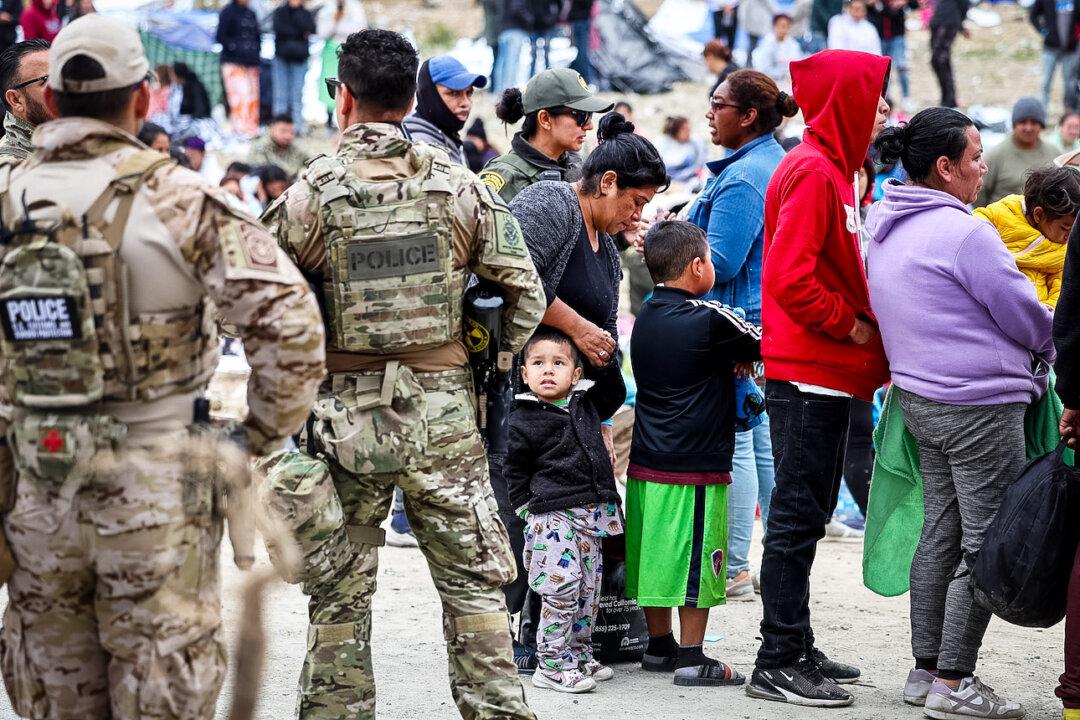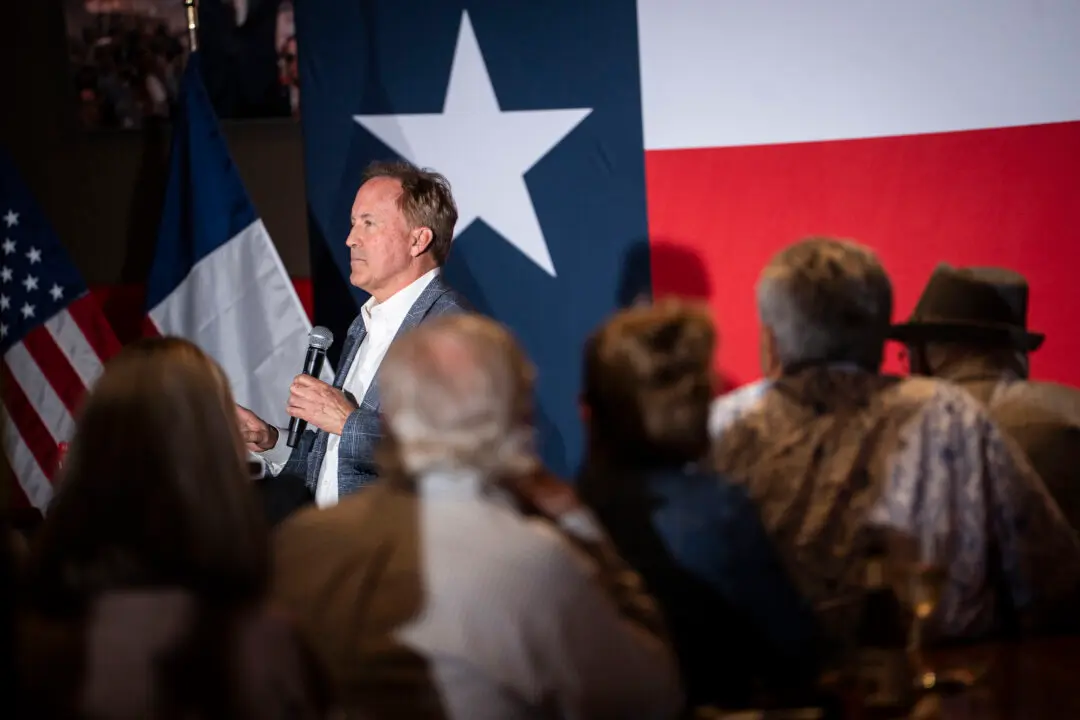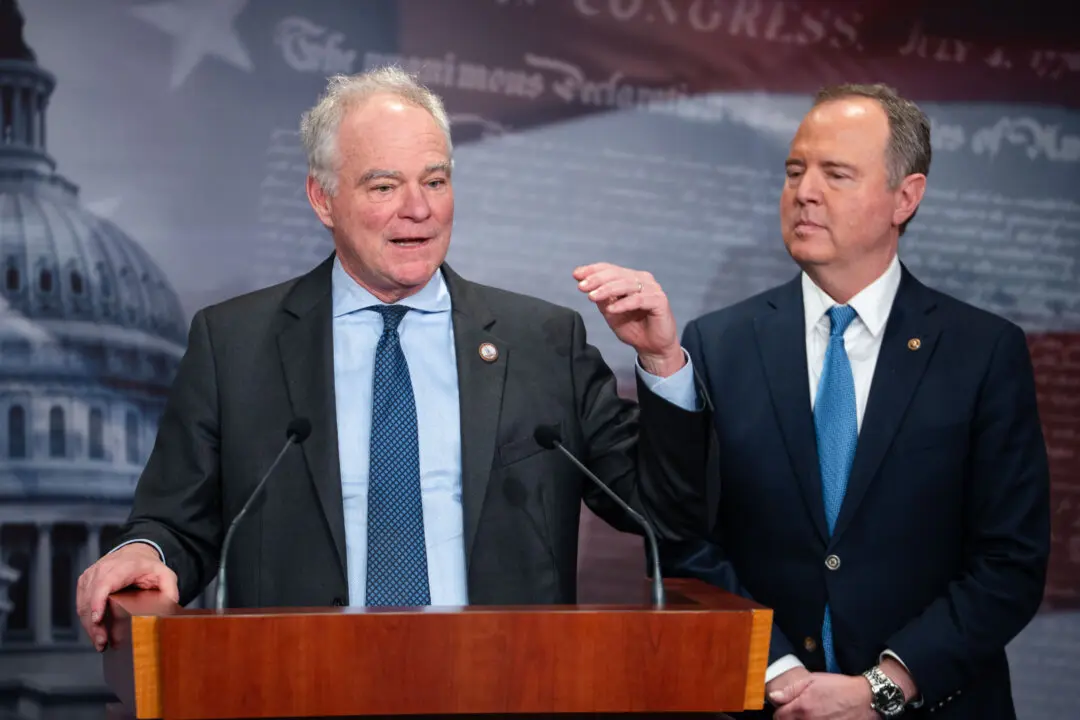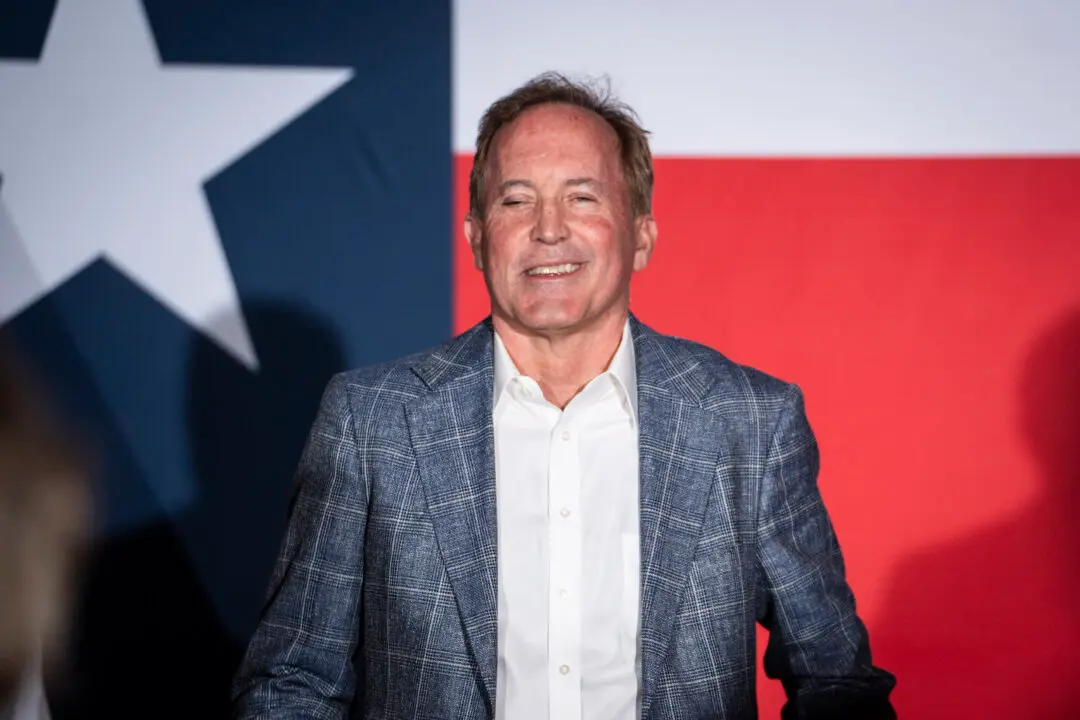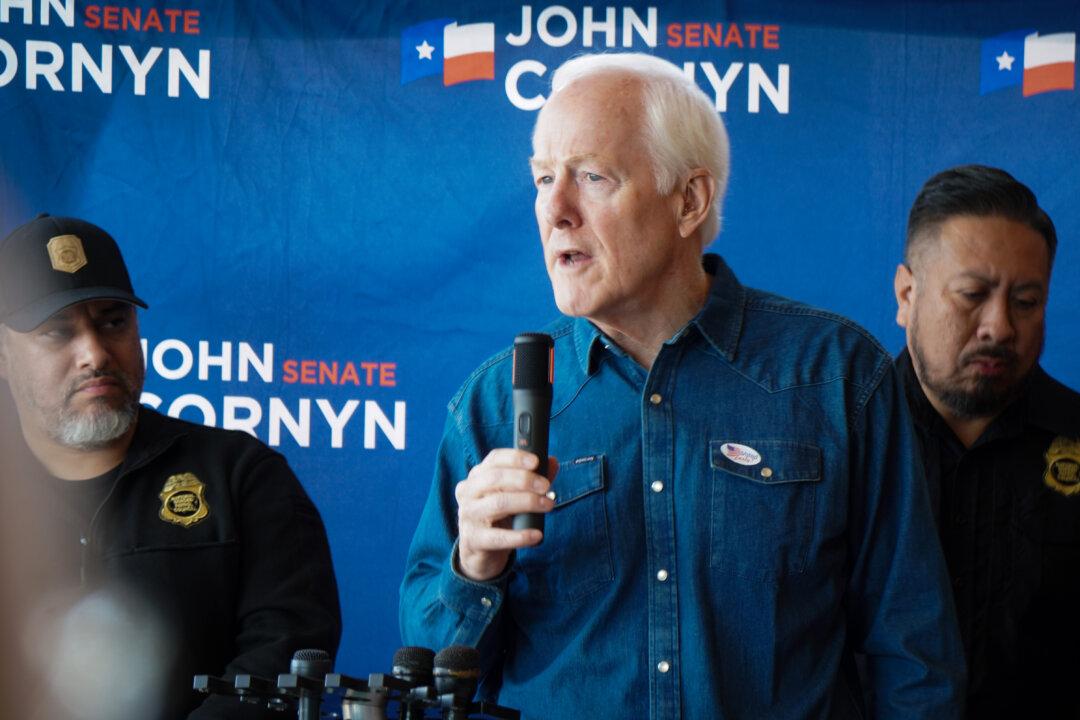An April survey of swing, or moderate, voters in six battleground states suggests the impacts of an open southern border is concerning them more than events in Ukraine.
Commissioned by the conservative Heritage Foundation and executed by the non-partisan RMG Research, Inc., the poll revealed that 56 percent of those voters felt the $113 billion price tag for Ukraine support thus far was either too much or far too much. Just 14 percent thought the United States had not spent enough on military aid for Ukraine, while 16 percent rated the spending about right.
